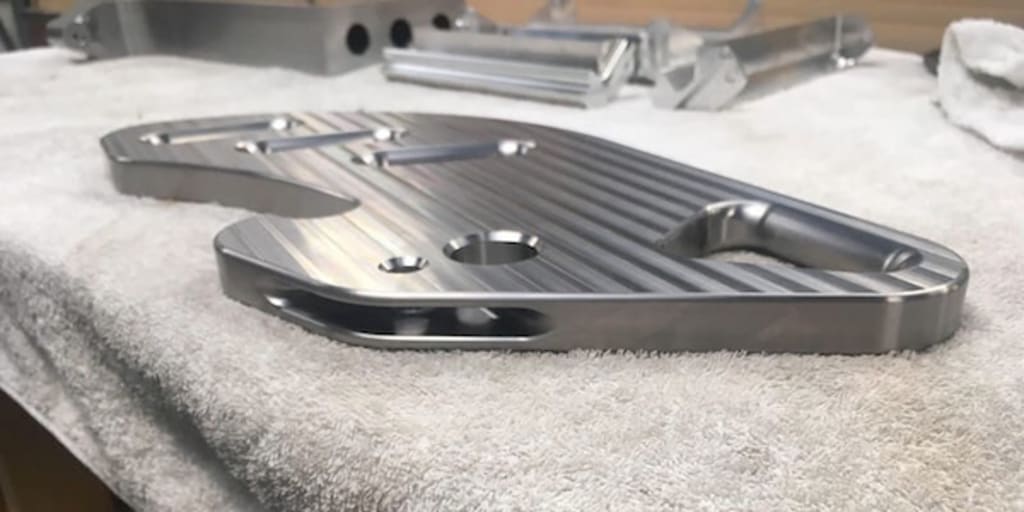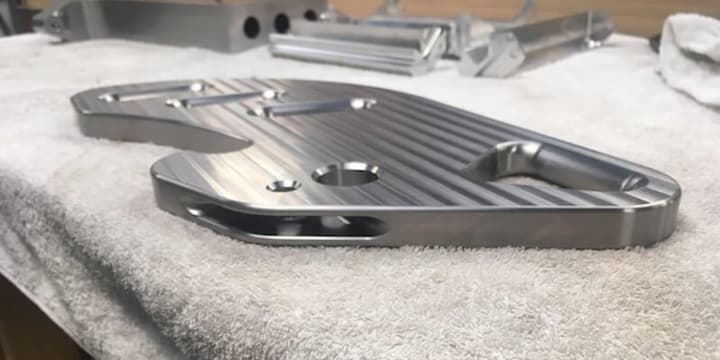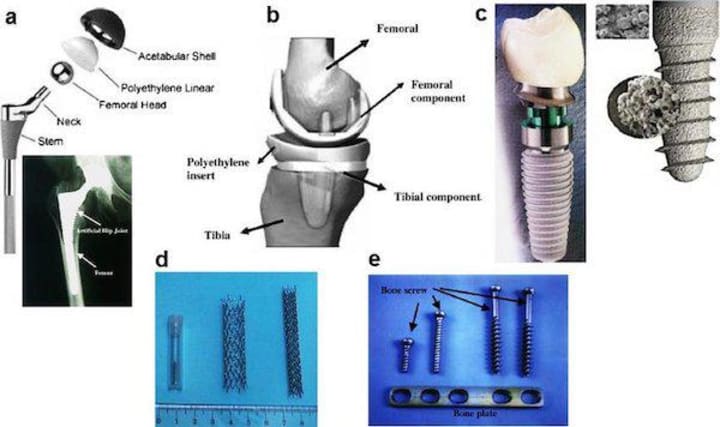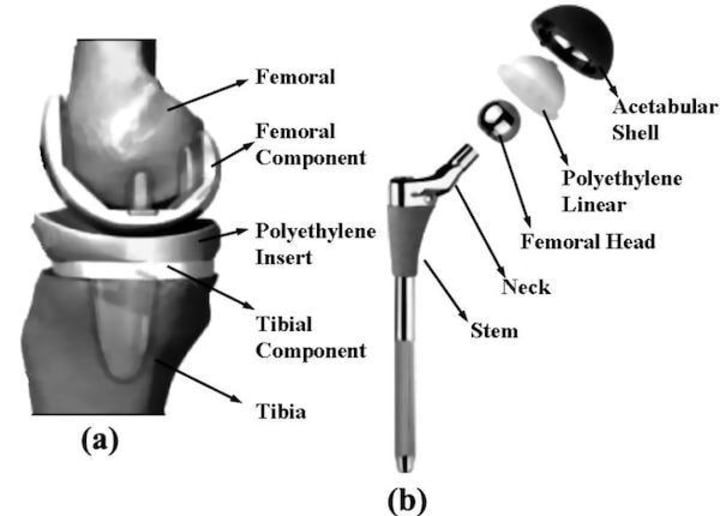
CNC titanium and its alloys were used in the field of biomedical in the late 1950s, which are one of the best choices for biomedical equipment and treatment purposes. Now these alloys are highly used in implantation and other medical surgical equipment of medical, including pacemaker devices, load-bearing bone, and artificial heart pumps.
Excellent corrosion resistance, antibacterial characteristics, and compatibility with bio make CNC titanium and its alloys the first choice for manufacturing biomedical equipment. Pure titanium (cp Ti, grade 2) and Ti-6Al-4V (grade 5) alloys are the most used titanium alloys in the biomedical field. These are extensively used as artificial bone, implantation of teeth, and joints.

Titanium has the ability to form physical bonds with living bones and hence it promotes Osseointegration. Porous titanium is also very highly rated in the medical field. As its 3D framework possesses bone-like mechanical properties and provides an environment for ingrowths of bones.
Application of titanium and its alloys in the field of biomedical
Titanium and its alloys have many applications in the medical industry, surgery, and dental fields. Some of the main applications are discussed below:
1. Arthroplasty (Joint replacement) and bone replacement
Titanium and its alloys are of great usage in human musculoskeletal structures because of their usage in hip and knee replacement. Nowadays, these are also frequently used for the correction, fixation, and replacement of spinal parts and disks.
One of the greatest applications of titanium and its alloys in arthroplasty is their use in Rib cages for children. These rib cages have the ability to grow with the body. This enables the young patients to grow as the rib cages grow. Other everyday use of titanium includes implants of finger and toe, tibial nails, and Fixation and reconstructive devices.
2. Osseointegration of titanium alloys and titanium alloys
When an implant is surgically placed within bone there are numerous biological, physical, chemical, thermal, and other factors functioning that determine whether or not osseointegration will occur. Due to their good biocompatibility and high strength properties titanium and its alloys have been vitally used for dental and orthopedic implants. The great benefit of using them is they prevent the formation of any chemical bond with the bone tissue.
To increase the bonding ability of titanium and its alloys scientists have been trying various coatings on them for the past few decades. Hydroxyapatite plasma spray coatings are one such advent. This is used in hip replacement surgery. Although it exhibits very good biocompatibility it presents some disadvantages too.
3. Surgical instruments

Forceps, clamps, and scalpels are the most common biomedical equipment made using titanium and its alloys. Braces on front teeth for lining and stents for teeth implants are made by using these alloys because they maintain sharp edges without wearing. Medical devices and their components are easily manufactured and implanted using titanium and its alloys. The great use of titanium and its alloys in surgical instruments is due to their antibacterial properties, anti-corrosion properties, and compatibility with radiation, durability, and lightweight nature.
Benefits of using titanium and its alloys in the biomedical field
Other than its lightweight and low wear and tear, it has a lot of other advantages as well. These advantages make it the best suited for use in the biomedical industry.
1. Bio inertness (inert to chemical reactions with human bodily fluids)
Titanium has bio inertness. It means that it forms a protective oxide film whenever a very small amount of oxygen is present near it, which prevents it from reacting chemically with human tissues under any biological environment.
2. Corrosion resistance
Another excellent feature of titanium is that it does not corrode easily. This quality of titanium is due to its self-ability of forming titanium oxide film which protects it from further oxidation. Due to this property titanium and its alloys are less toxic as compared to other metals used as biomaterials. Biomedical equipment and components made of titanium have a very long life and excellent resistance against corroding.
3. Elasticity and shape memory of titanium alloys
Ti-Ni is one of the shape memory titanium alloys. It has broadly been used in almost every field. However, its use in the biomedical field is limited due to the presence of Ni. This is because Ni has the ability to cause allergy reactions. Yet, they are used as catheters or stents. This is due to their shape memory and superelastic properties. To minimize this allergic effect various titanium alloys have been established. This includes Ti–Mo–Ga, Ti–Mo– Ge or Ti–Mo–Al, Ti–Ta, Ti–Ta–Zr, and Ti–Sc–Mo.
Demerits of using titanium and its alloys in the medical biomedical field
1. Toxic effect when used in permanent implant applications
When titanium or its alloys are used for a long period of time their ions and particles are deposited into the surrounding. This phenomenon results in bone loss. This happens due to inflammatory reactions.

The dental implant then leads to Osseointegration loss. This deposition of ions and particles of titanium in the surroundings causes toxic reactions in the tissues and nearby bones. This can cause yellow nail syndrome. Sensitive people can have allergic reactions or implant failure as well.
2. Poor tribological properties
Titanium and its alloys can have tribological properties. It can lead to unstable friction and fretting wear in implants. This can happen due to electronic configuration or low thermal conductivity of the material. Changing the nature of the surface will decrease or eradicate this problem.
Conclusions
With the innovation and advancement of titanium and its alloys used for manufacturing biomedical components and equipment. Many of the medical and surgery problems are being addressed and solved with the help of titanium alloys. Still, innovations are required to make new inventions in this field to make the treatment easy.
About the Creator
Ali Akbar
Ali Akbar is a Brand and Marketing Strategist who partners with entrepreneurs to grow their personal and professional brands, human-to-human. After spending nearly 4 years, Ali's knows what truly drives conversions, sold-out launches.





Comments
There are no comments for this story
Be the first to respond and start the conversation.